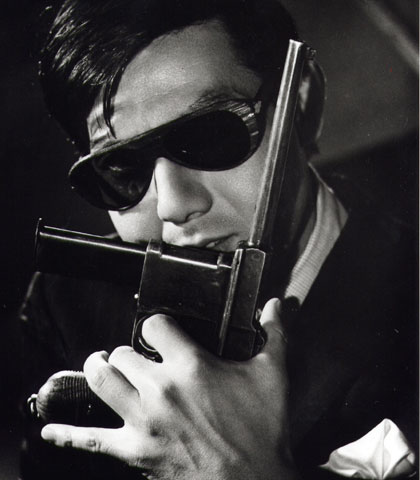
Two posts in one day? Has he gone mad? Perhaps. Or maybe I just wanted to post my first negative review. That's right, one of the easiest people in the world to please was not pleased or even all that impressed with this Japanese gangster flick.
This is the story of a Japanese hit-man, No. 3 Killer. He really loves the smell of boiling rice, for some reason. I have no idea what that means, but I feel it should be mentioned as Suzuki inserts this fetish into just about every other scene. Anyway, the usually reliable No. 3 (I would assume anyway, considering he ranks third in what is bound to be a pretty difficult business) botches an assassination attempt when a butterfly lands on the barrel of his sniper rifle, obscuring the view of his target. Because of this he becomes the target of the famed No. 1 Killer. No. 1 decides to toy with his prey first, going so far as to move in with No. 3 providing just about the only entertainment in the film.
Suzuki hurtles the story through space and time at an incredibly brisk pace (particularly in the first half hour), often refusing to take the time to set up locations and situations, causing a rather confusing sense of geography for many scenes. The action takes place in a similarly disjointed manner. Sometimes things happen so quickly, they seem like the filmic equivalent of run-on sentences. Or, perhaps a better way to put it would be that Suzuki is that guy we all know who tells stories too fast, jumping over and skipping around some of the small details, the little ones that help the story make sense. Perhaps, in a way, Suzuki is not interested in perpetuating the illusion of the motion picture and wants us to remember that we are just watching a movie. I personally think he's just being lazy. Though, he does seem to have some sense of composition, sometimes creating fantastic images. But just as often his use of blocking becomes irritating.
Eventually, Suzuki slows down a bit and begins to construct something interesting. Hell, when No. 1 moves in with No. 3 it becomes damn entertaining. But, by then, it is far too little, far too late.

